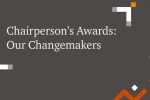Role of emerging tech in service delivery
04/07/16
- It proposes a city maturity model that highlights the various stages of urban development with which cities can identify a target state of operation and accordingly prioritise interventions to achieve the target state.
- Private sector should be made an equal stakeholder across the entire urban development value chain with public sector driving phases such as policy making, planning and monitoring, and private sector taking a lead in design, implementation, operations & management, and financing.
- The report proposes a 10 step action plan to enable cities to navigate the journey of urban transformation.
New Delhi, 8 April 2016 –The 'business of running cities' is changing rapidly due to the emergence of new business models and technologies. Innovative business models such as sharing and circular economy, digital integration of services, public asset revitalisation and innovative outsourcing, will unleash excess capacities in the urban realm and enable cities to do more with less. Internet of things (IoT), mobile based sensing, location and condition sensing, data analytics and open data will also play a key role in enabling cities to battle myriad urban challenges.
However, issues such as budget constraints, flawed governance structure, lack of leadership commitment and skills, dearth of trust among stakeholders (citizens, government and private sector), apart from external issues such as migration and demographic changes is impeding the adoption of these technological advancement in cities.
These findings are a part of a report by The World Economic Forum and PwC - Inspiring Future Cities & Urban Services which identifies the impact of emerging business models and technologies in transforming the way cities plan and operate.
Alice Charles, Head of Urban Development, World Economic Forum said, “In the fourth industrial revolution, we are likely to see the biggest industrial shifts in a generation, changing the way we work and live in the urban environment. Innovations such as 3D-printing, Artificial Intelligence and next generation robotics will shift models of work and production in ways that are impossible to predict. Cities and businesses need to be adaptive. Public private collaboration will be required to enable cities to navigate the path of this urban transformation.”
The risks associated with public private partnership differ in developing and developed economies. In the developing world, the risks pertaining to business environment are fundamental in nature and apply to most of the project phases, while in the developed world, the risks are centered on project phases such as planning, construction and termination. The report recommends Government initiated actions such as creating a stable regulatory environment, introducing administrative reforms, and developing reliable dispute resolution mechanism to address risks.
Hazem Galal, Global Leader, Cities and Local Government Network, PwC said, “Cities will have to ensure that their DNA (fundamental social and economic characteristics) is retained while they make journey towards urban transformation. Cities should be willing to experiment and at the same time learn from other cities while they develop unique city specific solutions that leverage on an accepted standard. Cities will have to create a balanced strategy by giving due considerations to social, economic, environmental dimensions.”
Neel Ratan, Leader, Government and Public Sector, PwC India added, “As we talk about creating more urban centers in India, we should learn from other countries on how to make the most of our spaces and create future ready cities with the right technological interventions. It is also equally important to protect the social mileu and environment as we undertake this technological transformation journey. Therefore it is important for private sector to engage with Government and local population to develop trust.”
The report provides a framework for cities to classify various urban dimensions across levels of maturity ranging from rudimentary to scalable (for e.g. a city that can adapt to changing needs), and suggests a ten step action plan for cities planning to navigate the urban transformation journey.
The World Economic Forum recommends the following for city governments:
- Usher regulatory reforms to attract capital and human resources in an increasingly competitive landscape
- Ensure agile and transparent mechanisms to rapidly respond to changing global environment
- Develop institutional capacity by investing in people and process
- Empower city leaders to change the default position of being risk averse and take calculated risks
- Involve citizens, NGOs, private sector, and academics in decision making to improve legitimacy and build trust
- Achieve the right balance to allow for organic growth while adhering to master plans
- Leverage standards and promote reuse to reduce cost and promote interoperability
In 2016, the World Economic Forum’s infrastructure and urban development industry partners will identify ways in which private sector can enable cities to meet the new global priorities and targets, as set out in the Sendai Agreement, Sustainable Development Goals, and COP21 as well as implement the new 20 year urban agenda being set out in Habitat III. The Forum will also undertake a deep dive on migration and cities, exploring the types, causes and patterns of migration to cities and identify ways to enhance public private cooperation to respond to this growing challenge, and assess how cities can leverage the opportunity presented by circular and sharing economy to do more with less.
The World Economic Forum’s ‘Shaping Future of Urban Development and Services Initiative’ serves as a partner in transformation to cities around the world as they seek to address major urban challenges and transition towards smarter, more sustainable cities in this rapidly urbanizing world. Directed by a Steering Board and guided by an Advisory Board, the Future of Urban Development and Services Initiative works in collaboration with local partners.
Notes to Editors:
- Follow the World Economic Forum at www.World Economic Forumorum.org
- View photos at http://World Economic Forum.ch
- Follow the Forum on Twitter at http://World Economic Forum.ch/twitter and http://World Economic Forum.ch/livetweet (hashtag #WORLD ECONOMIC FORUM)
- Read the Forum Blog at https://agenda.World Economic Forumorum.org/
- Become a fan of the Forum on Facebook at http://World Economic Forum.ch/facebook
- Follow the Forum on Google+ at http://World Economic Forum.ch/gplus
- Follow the meeting on iPhone at http://World Economic Forum.ch/iPhone
Ends
About PwC
At PwC, our purpose is to build trust in society and solve important problems. We’re a network of firms in 157 countries with more than 208,000 people who are committed to delivering quality in assurance, advisory and tax services. Find out more and tell us what matters to you by visiting us at www.pwc.com.
In India, PwC has offices in these cities: Ahmedabad, Bangalore, Chennai, Delhi NCR, Hyderabad, Kolkata, Mumbai and Pune. For more information about PwC India's service offerings, visit www.pwc.com/in
PwC refers to the PwC International network and/or one or more of its member firms, each of which is a separate, independent and distinct legal entity in separate lines of service. Please see www.pwc.com/structure for further details.
©2016 PwC. All rights reserved
Contact us

















